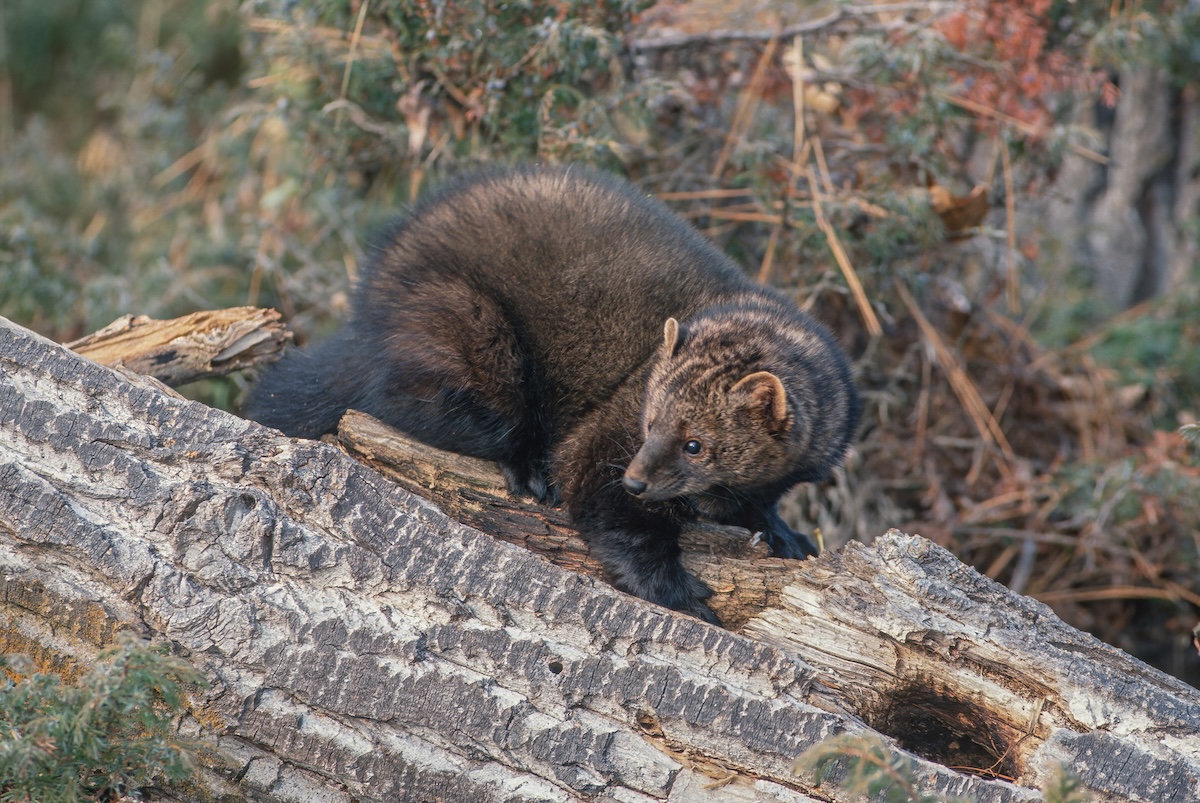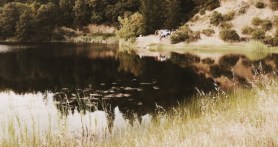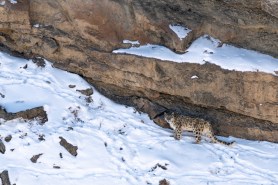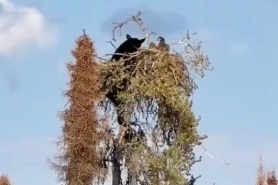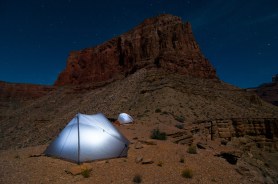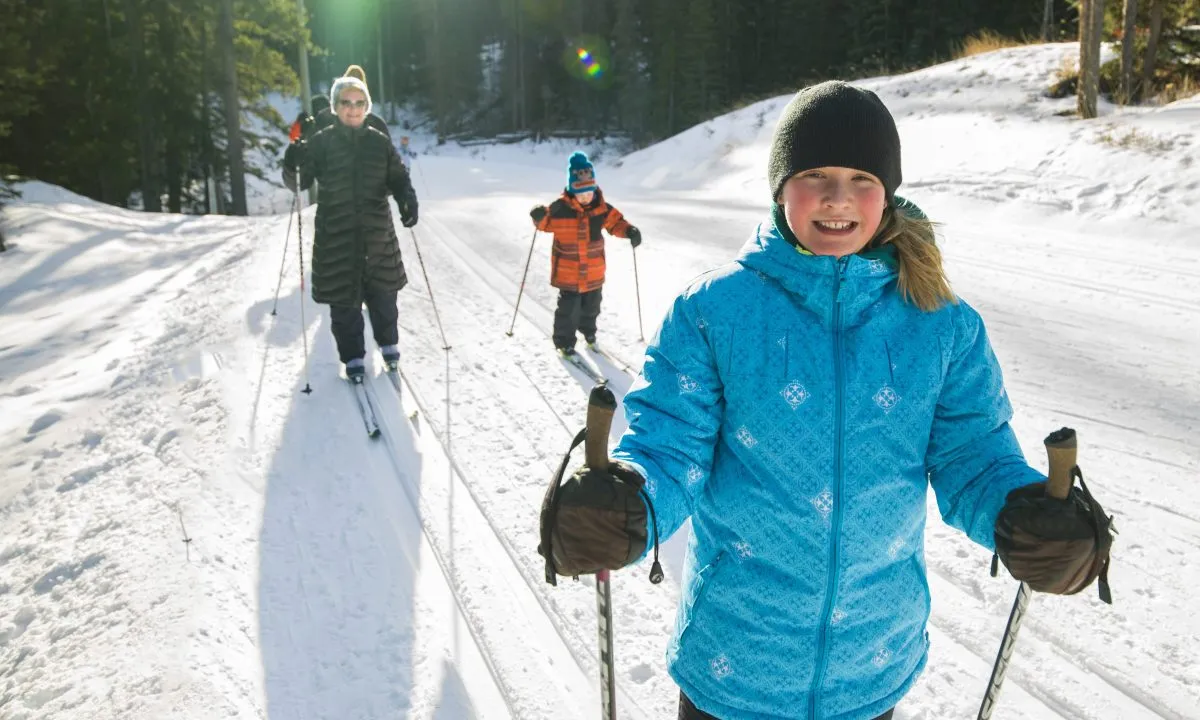

Cross-country skiing is a favorite winter pastime for several reasons.
Videos by Outdoors
First, it’s great for beginners. Second, there is also a relatively barrier to entry. Third, it is for all ages. Combined, and you can be out and enjoying the snowy landscape in no time.
Grab your family and friends, and we’ll get you the info you need to get going.
Types of Cross-Country Skiing
There are two main styles of cross-country skiing. The first style is classic skiing. This is the original version of the winter sport, where you are striding in a straight line. You may have heard this called a “kick and glide” or “diagonal stride” technique. Both are references to class cross-country skiing.
A more recently developed version of cross-country skiing is skate skiing. This is just what it sounds like. Picture a speed skater or roller bladder, and then put them on cross-country skis. With this technique, you make a skating movement forward, catching more speed.
Learning How To Cross-Country Ski
You can definitely head out and learn how to cross-country ski on your own, but you’ll probably have more luck if you have someone show you the ropes. The basic movements are easy to pick up, and if you have someone teach you, you’ll get the hang of it in no time.
The best options for learning how to cross-country ski are taking lessons (the more expensive route) or having a friend teach you. Learning from a friend can be a fun bonding experience and something you’ll look back on (or laugh back on) for many winter seasons to come.
If you head out on your own, simply start by shuffling forward on your skis. Don’t worry about the poles yet. Put your weight on one foot and move the other one forward. Give yourself some time to become comfortable, as it may feel strange at first.
When you feel confident, start to push harder with your foot while leaning forward, so you begin to glide. This is the part of cross-country skiing that makes it so fun. When you’re doing it right, it almost feels like you’re falling forward.
When this gliding motion starts to feel natural, it’s time to pick up the poles so you can really get cooking. If you push off your left foot, you’ll glide with the right and bring your right pole forward. Plant it in the ground, push with the right, and then glide with the left.
Know that pole placement might take a while to perfect. If you plant too far out, it will slow you down. Too far back, and you won’t have a full range of motion to gain momentum from the pole. Also, different pole placements work better for different speeds. Experiment and find out what works best for you.
Cross-Country Skiing Gear
With any outdoor recreational activity, having the right gear is the most important first step. If you decide to go for the instructor route, you will be able to rent all the equipment needed. If you have a friend teach or choose to teach yourself, you’ll need to rent, buy, or borrow gear.
Borrowing gear is a great option, but you’ll need to make sure everything is the right size; otherwise, you’ll have a tough time out there.
First, you’ll need cross-country skis. Skis are sized based on your weight, so you’ll need to check out a sizing chart to make sure you get the right fit. Next, just like regular down-hill skiing, you’ll need boots and bindings.
Your boots should always be comfortable and flexible. Ensure that your boots are compatible with the binding system you choose and that you know how to work them before heading out to cross-country ski.
Finally, you’ll need an appropriately sized set of poles. The right size poles will hit you right about where your armpits are when you have the tips in the snow. Having the wrong size poles will definitely impact your skiing, so make sure you size them correctly.
Dressing for Cross-Country Skiing
Another essential component to having a stellar time out cross-country skiing is to make sure you have dressed appropriately for the activity. No one likes freezing out in the snow, and you can avoid that reality by making sure you dress smart the first time.
Wool or synthetics socks are the way to go because they’ll keep you warm and dry as you move along, wicking your sweat, so the moisture doesn’t chill you to the bone.
Dress in layers. Dress in layers. Oh, also, dress in layers. We cannot state this enough. As with most outdoor winter activities, you start out pretty chilly, but you’ll warm up quickly as your heart rate increases. As you get warmer, you’ll want to shed some layers, and you can’t do that if you’re all bundled up in one heavy jacket and nothing else.
Wool and synthetics materials are best for your layers because they wick your sweat and retain your heat even when they get wet. Avoid cotton layers because it behaves the exact opposite way, leaving you shivery and ready to go home.
Having three layers in a good general rule of thumb: a base layer, a mid-layer, and an outer layer. Wearing a pair of waterproof gloves and a warm hat will help you retain heat and keep your fingers from turning into icicles.
Cross-Country Skiing Safety
As with most sports, there are a few general safety guidelines that are good to keep in mind to make sure you don’t end up injuring yourself while you’re out cross-country skiing.
First, it is super important to make sure you’re staying warm. Frostbite is no joke. Follow the dress code above, and you should be just fine out there.
Next, know your avalanche areas and avoid them. Avalanches may seem like something that only happens on huge mountains, but that isn’t the case. You need to be aware of the risky areas and stick to safer terrain.
Lastly, fall with grace. We all fall down at some point when we’re hanging out in icy conditions. Make sure to protect your wrists and your head when you inevitably take a tumble.
Have Fun Out There!
With this beginner’s guide to cross-country skiing, you’re ready to try it out for the first time! It may take a few tries to get the hang of it, but once you do, you’ll be racing across the winter landscape in no time.
Also – make sure you check out our Beginner’s Guide To Snowshoeing!
